While cruising through my local Home Depot the other day, I stopped and did a double-take in the smoke alarm section. Almost all of the smoke alarms had been replaced with a single model: the Kidde Detect.
Do you see what I’m seeing? They come in many options, such as hardwired, battery, sealed 10-year-battery, CO alarm combo, etc. Almost everything on the shelf is a different flavor of the exact same detector. Here’s another photo where I color-coded a few different categories of products.
Is this ionization or photoelectric?
My only question about these smoke alarms is how they work: do they use ionization (bad) or photoelectric (good) technology? It’s subtle, but there’s an icon on the bottom of the box and text saying “Photoelectric+ Firmware Technology.” Good stuff.
There’s also fine print on the alarm telling you it’s photoelectric.
Did I just call ionization bad?
Yep, I sure did. Now before you give me the tired old argument about how ionization alarms are superior at detecting fast-flaming fires, let me start with this. I’m oversimplifying things a little bit to get my point across. There are some very rare instances where ionization alarms might give people a few more seconds of warning… sure. But these smoke alarms are frequently disabled from nuisance alarms, and they respond to slow, smoldering fires tens of minutes longer than photoelectric smoke alarms.
In short, history has proven that ionization alarms give a false sense of security, while photoelectric smoke alarms save lives. If you don’t know the difference between the two, please take a minute to check out my blog post from 2013 titled Photoelectric smoke alarms are all you need. And watch a few of the videos at the end of that post. They’re truly sobering.
In short, I’m a huge advocate for photoelectric smoke alarms, it’s all I have in my home, and we recommend them to our home inspection clients.
So what’s up with the lack of selection at Home Depot?
I inspected every smoke alarm at my local Home Depot, and they no longer sell ionization smoke alarms—not even dual-sensor alarms. They’re all photoelectric.
I sent emails to Home Depot and Kidde over a month ago asking for input on the huge change in smoke alarm selection. Neither one of them have responded to me.
So at this point, I can only guess at the reason for the change, but I think it’s pretty obvious: they don’t want to sell ionization alarms anymore!
Why? Because they’re inferior. People die unnecessarily when ionization alarms fail to sound off, or they’re disabled because of nuisance alarms.
Kudos to Home Depot and Kidde
I’m very glad that Home Depot and Kidde have made it impossible to purchase ionization smoke alarms. And I hope my local Home Depot is representative of all other Home Depot stores. The new Kidde Detect alarms use superior technology and can be identified by their unique oval front.
Unfortunately, Home Depot still sells ionization alarms on their website. Hopefully, that will change soon.
If you don’t know what type of smoke alarms you have in your own home, check them out and make sure, especially if you have a new home. It’s extremely rare to find a new home built in Minnesota with anything but inferior ionization alarms. New does not mean good. And if you don’t have photoelectric smoke alarms, you should add them or replace your existing alarms.

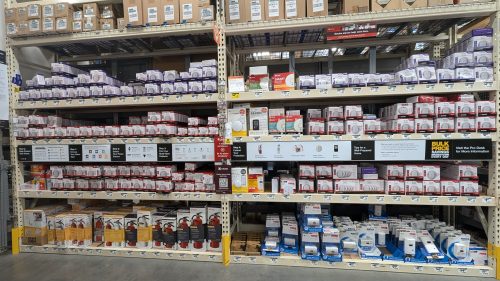
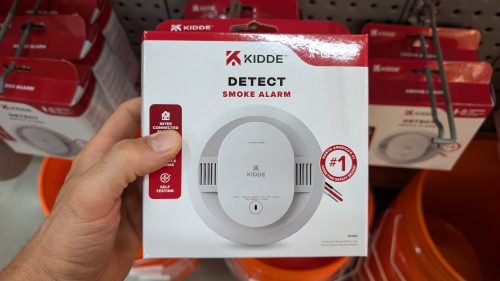
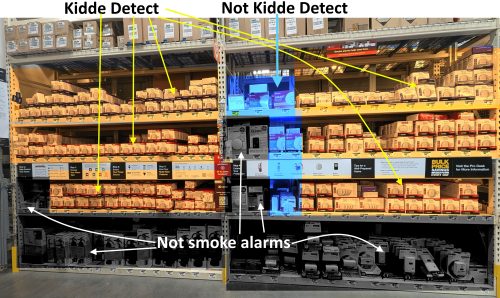

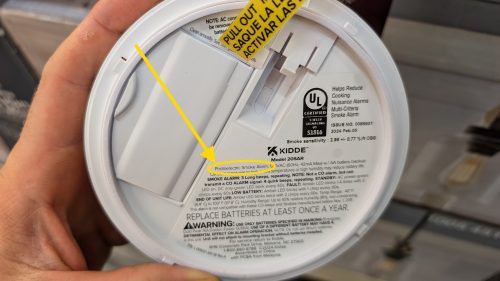
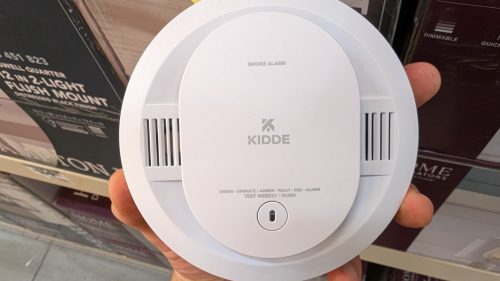
Robyn Deveney
August 27, 2024, 10:59 am
Great news, thanks for the heads-up. What’s your opinion on sealed vs replaceable battery? We happily got all sealed- battery alarms for our rental camps, only to discover that they refuse to “hush” after a nuisance alarm. With no option to remove the battery, these units can only be silenced by permanently disabling them.
Incidentally, in our rustic cabins smoke alarms frequently go off in the middle of the night. I suspect that insects (moths, etc) are attracted to the LED and fly through the openings, triggering the photoelectric sensor. So while we’re campaigning for improvements to smoke alarms, I’d like to put in a request for bug screen over the openings.
Reuben Saltzman
August 27, 2024, 5:41 pm
Hi Robyn,
I much prefer the idea of sealed 10-year batteries, as you have nothing to maintain. But I’ve never personally used them; I’ve always had hardwired smoke alarms with battery backup.
As for your nuisance alarms, try vacuuming the alarms periodically. This is supposed to help with nuisance alarms.